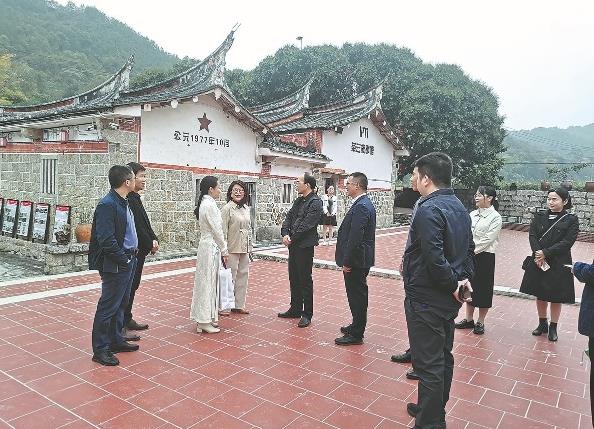Cultivating China's next generation of tea makers


As a result, Hsu has often taken students to the farmlands and industry workshops to talk to and work with industry players.
One of the places she has frequented with her students is the 1977 Tea Cloud ecological courtyard, which offers cultural experiences, traditional skills teaching, leisure and sightseeing.
It was set up by He Huanzhu, a former student of Hsu's and a close friend.
"Hsu gave well-prepared and meticulous classes," He says.
"She can make full use of time, and explain key knowledge in a vivid and orderly fashion," He adds.
The ecological courtyard has also been part of Hsu's efforts to nurture local female tea masters.
"Women are a major force behind rural revitalization, and I've been paying attention to their employment and entrepreneurship," Hsu says.
"I hope I can be of some assistance for them to achieve their goals in tea plantation, tea garden management and making tea."
Zheng Qiaoling, a female tea planter, has studied a training program at the courtyard for more than three years. Her tea-growing skills have greatly improved over the years, which allows her to save 28,000 yuan ($4,170) a year in the management of her own family tea garden and see an annual income increase of nearly 50,000 yuan, Zheng says.
Hsu says she has seen the bigger picture in the mainland's rural revitalization.
"I will base my scientific papers on the agriculture of the country," she says.
"I hope I can keep teaching in Fujian, fulfill my responsibilities and do what I want."
Yang Jie contributed to this story.




































